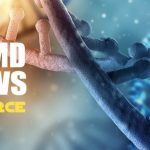
One of the objectives of our team is to inform you about new treatments. Here’s the latest news from a recent Solid Bioscience press release about SGT-001, the Company’s lead microdystrophin gene transfer candidate. Enjoy reading and thank you for sharing these articles within the DMD community.
Solid Biosciences announces new preclinical data at the American Society of Gene and Cell Therapy Annual Meeting
Solid Biosciences Inc. announced new preclinical data from its gene therapy development programs for Duchenne muscular dystrophy (DMD). New data for SGT-001 further demonstrate its potential to produce long-term and body-wide microdystrophin expression that correlates with significant improvements in muscle function.
“Solid remains steadfast in our mission to bring important therapies to patients with DMD, where a significant unmet need exists. These data further support the investigation of SGT-001 as a potential new treatment option for those living with this devastating disease, as well as reinforce our commitment to advancing cutting-edge innovations through our next generation gene therapy pipeline,” said Carl Morris, Ph.D., Chief Scientific Officer of Solid Biosciences.
- Learn more about this study here: SOLID BIOSCIENCES INITIATES CLINICAL TRIAL FOR GENE TRANSFER
- In case you don’t remember the specifics about the microdystrophin and gene therapy we invite you to watch the interview we conducted last year in London with Dr. Jeffrey Chamberlain: LINK TO VIDEO
About SGT-001
SGT-001 is a novel adeno-associated virus* (AAV) vector-mediated gene transfer under investigation for its ability to address the underlying genetic cause of DMD. SGT-001 is a systemically administered* candidate that delivers a synthetic dystrophin gene, called microdystrophin, to the body. This microdystrophin encodes for a functional protein surrogate that is expressed in muscles and stabilizes essential associated proteins.
- Adeno-associated virus > is a small virus which infects humans and some other primate species. Link
- Systemically administered > Systemic forms of administration affect the whole body (in general).
Data from Solid’s preclinical program suggests that SGT-001 has the potential to slow or stop the progression of DMD, regardless of genetic mutation or disease stage. SGT-001 is based on pioneering research in dystrophin biology by Dr. Jeffrey Chamberlain of the University of Washington and Dr. Dongsheng Duan of the University of Missouri.
Status
SGT-001 has been granted Rare Pediatric Disease Designation or RPDD in the United States and Orphan Drug Designation in both the United States and European Union. The Phase I/II clinical trial for SGT-001, IGNITE DMD, is currently on clinical hold. Microdystrophin gene transfer trial on hold
About Solid Biosciences
Solid Biosciences is a life science company focused solely on finding meaningful therapies for Duchenne muscular dystrophy (DMD). Founded by people touched by the disease, Solid Biosciences is a center of excellence for DMD, bringing together experts in science, technology and care to drive forward a portfolio of candidates that have life-changing potential. Currently, Solid Biosciences is progressing from programs across four scientific platforms: corrective therapies, disease-modifying therapies, disease understanding and assistive devices. For more information, please visit this website: www.solidbio.com.
About DMD
Duchenne muscular dystrophy (DMD) is a disease that almost exclusively affects boys and whose incidence is 1 in 3,500. It is extremely rare that Duchenne muscular dystrophy (DMD) will affect girls. Those affected are usually diagnosed around the age of five, but symptoms may be visible from early childhood. It is a degenerative disease of the muscles caused by a genetic mutation. The Duchenne muscular dystrophy (DMD) – for which no treatment is currently available – directly affects skeletal muscles. Without treatment, the consequences of the disease are dire for those afflicted and their families.
To know more
SOLID BIOSCIENCES INITIATES CLINICAL TRIAL FOR GENE TRANSFER



